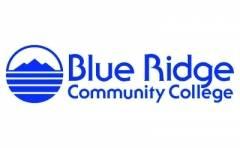Best Veterinary Science colleges in Virginia
Students interested in pursuing a degree in veterinary science can choose a variety of career paths depending on the species they intend to work with the most. Specialists in the field of veterinary science observe animals, assess physical or psychological issues, and provide treatment. They can be employed at an animal hospital or clinic, though many veterinarians open their private practices.
Students interested in becoming a veterinarian should note that while many schools offer a Bachelor of Science in Veterinary Science, many programs recommend pursuing a graduate degree to further their knowledge and increase the likelihood of landing a job post-graduation.
Students can earn their degree in veterinary science in person and many programs require professional internships to provide increased experience and opportunities to observe current professionals. The Bureau of Labor Statistics reports that there are over 2,000 veterinarians in Virginia with many jobs located in the Richmond and Arlington metro areas.
Best Veterinary Science colleges in Virginia for 2025
Blue Ridge Community College offers 2 Veterinary Science degree programs. It's a small, public, two-year college in a outlying rural area. In 2022, 143 Veterinary Science students graduated with students earning 109 Certificates, and 34 Associate's degrees.
Virginia Polytechnic Institute and State University offers 3 Veterinary Science degree programs. It's a very large, public, four-year university in a small city. In 2022, 134 Veterinary Science students graduated with students earning 124 Doctoral degrees, and 10 Master's degrees.
Northern Virginia Community College offers 1 Veterinary Science degree programs. It's a very large, public, two-year college in a large suburb. In 2022, 27 Veterinary Science students graduated with students earning 27 Associate's degrees.
Tidewater Community College offers 2 Veterinary Science degree programs. It's a large, public, two-year college in a midsize city. In 2022, 29 Veterinary Science students graduated with students earning 21 Associate's degrees, and 8 Certificates.
Patrick & Henry Community College offers 1 Veterinary Science degree programs. It's a small, public, two-year college in a outlying rural area.
Averett University offers 1 Veterinary Science degree programs. It's a small, private not-for-profit, four-year university in a faraway town.
Eastern Virginia Medical School offers 2 Veterinary Science degree programs. It's a small, public, four-year university in a midsize city. In 2022, 6 Veterinary Science students graduated with students earning 6 Master's degrees.
Top schools offering Veterinary Science degrees in Virginia
List of all Veterinary Science colleges in Virginia
| School | Average Tuition | Student Teacher Ratio | Enrolled Students | |
|---|---|---|---|---|

|
Blue Ridge Community College Weyers Cave, VA | 53 : 1 | 3,562 | |

|
Virginia Polytechnic Institute and State University Blacksburg, VA | 18 : 1 | 38,170 | |

|
Northern Virginia Community College Annandale, VA | 89 : 1 | 51,896 | |

|
Tidewater Community College Norfolk, VA | 61 : 1 | 16,195 | |

|
Patrick & Henry Community College Martinsville, VA | 40 : 1 | 1,861 | |







